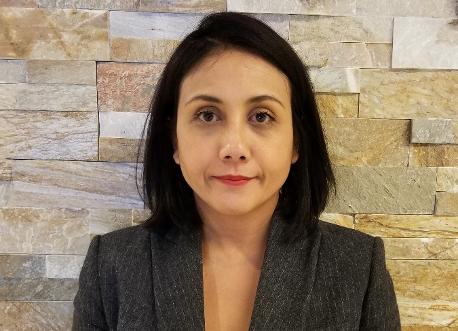
Gene Vasilopoulos, Candidate au doctorat
This session is offered through a secured version of Zoom used by the University of Ottawa. The session will be monitored to track and remove any obscene, non-inclusive or disrespectful language. Any perpetrators of such behavior will be identified and persecuted to the fullest extent of the law and university regulations.
Working Within the Research Assemblage: Reading Plagiarism in L2 Student Digitally Mediated Writing Differently
- Mercredi, 27 janvier à 16 h
La présentation sera en anglais avec des possibilités de poser des questions en français.
Résumé
Digital technologies are reshaping the notions of text and authorship not only in our everyday social communication but also in university-level academic writing. In response, scholars have questioned the impact that out-of-school digital communication habits may have on in-school literacy practices, including the reconfiguration of authorship and a de-privileging of “originality” as the benchmark for academic credit (Johnson-Eilola & Selber, 2007; Kutz et al., 2009). Uptake of remix-culture inspired digitally mediated writing has been especially slow in English for Academic Purposes (EAP) where English language learners and newcomers to higher education are inducted.
This presentation draws on the work of Deleuze & Guattari (1987) to explore the intersections of plagiarism and technology as second language (L2) writers compose an end-of-term research paper in an EAP program. Drawing on multiple data sources to document the L2 student writing process (in-depth interviews, document analysis, and screen-cast recordings), this presentation explores student writing through the concept of assemblage, the L2 student writers’ assemblage and the research assemblage (Fox & Alldred, 2014). Assemblage allows for a rhizomatic reading of the participant data to highlight difference and generative potential in each student’s writing practice. In this presentation, I illustrate how the “non-method” of rhizoanalysis (Masny, 2013) deployed in this study changes the nature of analysis and transforms how we can conceive the intersections of technology and plagiarism in student writing. To conclude, broader methodological implications of applying Deleuzo-Guattarian inspired research methods to language education research will be discussed.
Gene Vasilopoulos is a Doctoral Candidate at the Faculty of Education, University of Ottawa. Her research interests include transnational and international education, critical applied linguistics, and Deleuzian-inspired research methods. Most recently, her work has appeared in Critical Inquiry in Language Studies, E-Learning and Digital Media, Journal of International Students, and Journal of Language, Identity, and Education.
